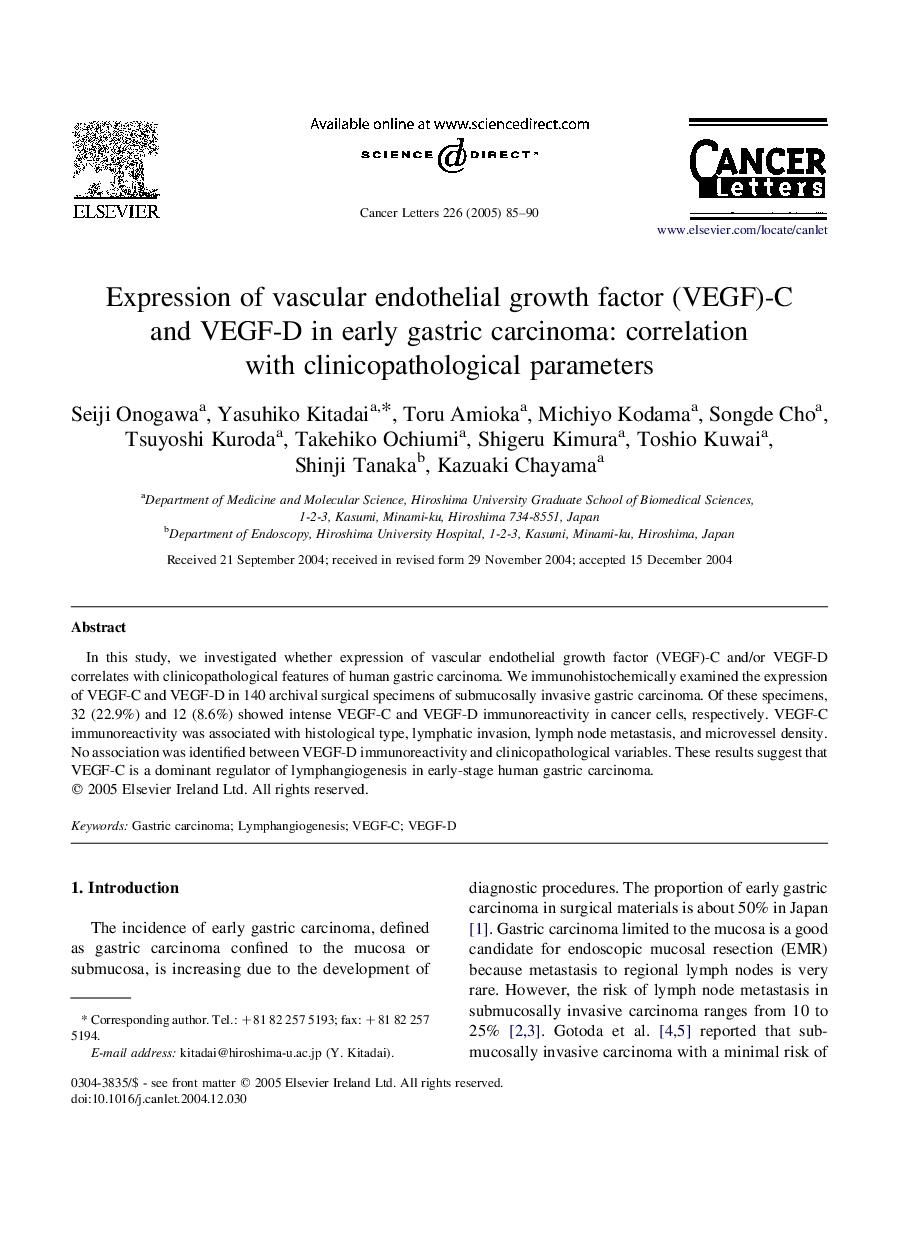| Article ID | Journal | Published Year | Pages | File Type |
|---|---|---|---|---|
| 10902480 | Cancer Letters | 2005 | 6 Pages |
Abstract
In this study, we investigated whether expression of vascular endothelial growth factor (VEGF)-C and/or VEGF-D correlates with clinicopathological features of human gastric carcinoma. We immunohistochemically examined the expression of VEGF-C and VEGF-D in 140 archival surgical specimens of submucosally invasive gastric carcinoma. Of these specimens, 32 (22.9%) and 12 (8.6%) showed intense VEGF-C and VEGF-D immunoreactivity in cancer cells, respectively. VEGF-C immunoreactivity was associated with histological type, lymphatic invasion, lymph node metastasis, and microvessel density. No association was identified between VEGF-D immunoreactivity and clinicopathological variables. These results suggest that VEGF-C is a dominant regulator of lymphangiogenesis in early-stage human gastric carcinoma.
Related Topics
Life Sciences
Biochemistry, Genetics and Molecular Biology
Cancer Research
Authors
Seiji Onogawa, Yasuhiko Kitadai, Toru Amioka, Michiyo Kodama, Songde Cho, Tsuyoshi Kuroda, Takehiko Ochiumi, Shigeru Kimura, Toshio Kuwai, Shinji Tanaka, Kazuaki Chayama,
